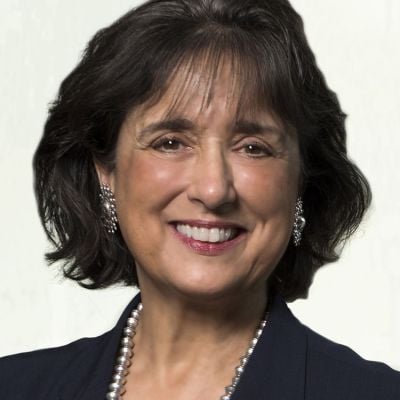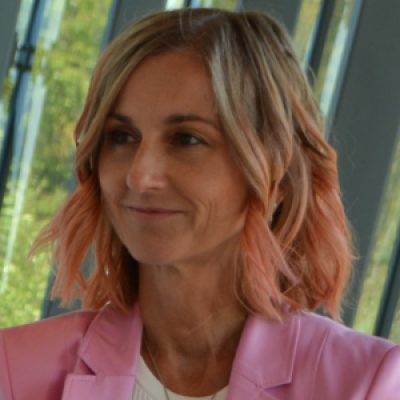

|
Q & A with Debra Cherry, PhDExecutive Vice President, Alzheimer's Los Angeles |
You are a member of the Milken Institute Alliance to Improve Dementia Care. Describe the expertise that you bring to the Alliance and how the ideas explored during our convenings have helped inform your work.
Improving dementia care has been a long-term commitment for me, beginning early in my career when I observed that these individuals and their families received almost no assistance from their health-care providers and lacked community-based supports to help them stay at home with a decent quality of life. Today, we still see that only half of people living with dementia receive a formal diagnosis, and less than half of them are told of that diagnosis. Sadly, the population living with a dementing condition is growing, but resources in health-care systems and for home-based support are insufficient and shrinking. The Milken Institute Alliance to Improve Dementia Care is trying to address this problem, which is only going to get worse as the baby boomer generation reaches their 80s. The Alliance enables dementia-care advocates to share information about promising models of care and to collaborate on strategies that will hopefully bring public resources to support these models. The Alliance’s members also strengthen their interpersonal relationships, which leads to further collaboration to improve dementia care beyond the Alliance’s structure.
Individuals living with dementia have complex medical and psychosocial needs that are often not met. How would you define the core components of comprehensive dementia care, and how do they contribute to improved quality of life among people living with dementia and their caregivers?
People living with dementia are much more than patients. They develop dementia within the context of their personal histories, their cultural and socioeconomic context, their social arrangements, and their comorbid health problems. To offer person- and family-centered care, all of these and more must be addressed. The core components of comprehensive dementia care must include: (1) full assessment and ongoing monitoring, including assessment of the caregiving family’s unmet needs (family defined broadly); (2) creation of a person- and family-centered care plan; (3) disease education and psychosocial interventions in support of this person and the family; (4) management of medications, comorbid conditions, and behavioral symptoms of the dementia; and (5) coordination of care both within the health-care system and with home- and community-based supports, like adult day services, in-home care, and support groups. All of these core elements must take language, literacy level, comorbidities, and more into account for a holistic approach to the individual and family that will contribute to improved quality of life.
Can you describe some of the most pressing challenges the people you serve face in seeking out a diagnosis in the Greater Los Angeles area?
Although their numbers are growing rapidly, people with early-stage cognitive impairment who recognize their mental changes and seek a diagnosis are still a small minority of those served by Alzheimer’s Los Angeles. These individuals tend to be better educated. Yet, even this group faces challenges convincing their medical providers to initiate a diagnostic work-up. Often their level of function is so high that their providers need to be convinced to take the next steps.
More commonly, the families that reach out to Alzheimer’s Los Angeles do so when their relative’s dementia is far-advanced. These are families who have less formal education and fewer resources. Many are from diverse ethnic or immigrant groups. Some view dementia as a normal part of aging. For others, it is a stigmatized condition. Indeed, many of their physicians share a stigmatized view of the condition and refrain from making a formal diagnosis because they do not believe it will benefit the patient.
There is a great need for public education about dementia, its symptoms, and the benefits of a diagnosis. There is also a great need for provider training, especially among primary care providers, so that even in brief office visits, they initiate a conversation about cognitive status and have the knowledge and resources to follow up when they perceive that a further work-up is needed. A “check up from the head up” should become part of usual care, particularly for at-risk groups: older adults with histories of hypertension, stroke, diabetes, and other risk factors for dementia.
People living with dementia and their caregivers have to navigate a complex and fragmented health-care system to receive quality care after a diagnosis. What must be done to promote a more seamless, coordinated patient experience?
When people experiencing cognitive decline receive a diagnosis, they and their families are often left on their own, with little disease education or support. For other conditions, like diabetes and cancer, this is not the case. For these individuals, there is a strong probability that one’s physician will make a referral to a health educator to provide disease education, discuss diet, care regimens, and so on. People diagnosed with dementia should have access to the same supports. This role has alternatively been called a dementia care manager, dementia care coordinator, dementia health educator, and so on. It may be filled by a trained health-care system’s nurse or a social worker, or it can be contracted out to professionals from an Alzheimer’s-knowledgeable organization. The professional serving in this role can work with the patient and family to provide culturally and linguistically appropriate disease education; create a care plan; assure that a caregiver is identified, assessed, and given access to training programs as appropriate; and make connections to other providers to address medical needs, long-term care supports, financial and legal planning. This “care navigator” role is critical to vulnerable older adults and their families. While it doesn’t impact the diagnosis, it can definitely help the person and the family cope with this life-changing disease.
Describe the work Alzheimer’s Los Angeles is doing to improve access to high-quality social services for individuals living with dementia and their caregivers. How are current Medicare reimbursement policies impacting your ability to deliver comprehensive care?
Historically, most people contacted Alzheimer’s Los Angeles when they were in crisis or considering nursing home placement for a family member with advanced dementia. Through our organization’s training of staff (physicians, care managers, and others) in large health-care systems, this has started to change. Currently, most of our referrals come from health systems participating in the state’s Medicare-Medicaid demonstration program or those with large numbers of Medicare Advantage enrollees through our confidential e-referral system. On our staff, trained and mostly bilingual social workers assist people with dementia and caregivers by assessing their needs, providing disease education and support, and connecting them to programs and services that can be helpful, such as evidence-supported caregiver training, support groups, adult day services, in-home care, and public benefit programs. Like many community-based organizations that address the social determinants of health, Alzheimer’s Los Angeles hopes that new Medicare reimbursement policies will gradually lead to actual payment for services rendered. This would enable small organizations like ours to scale programs and deliver more intensive and comprehensive care. Alzheimer’s Los Angeles is working to develop a convincing business and value case for health-care systems to consider as they decide which optional services they should offer. A dementia management program could become one of these optional services.












